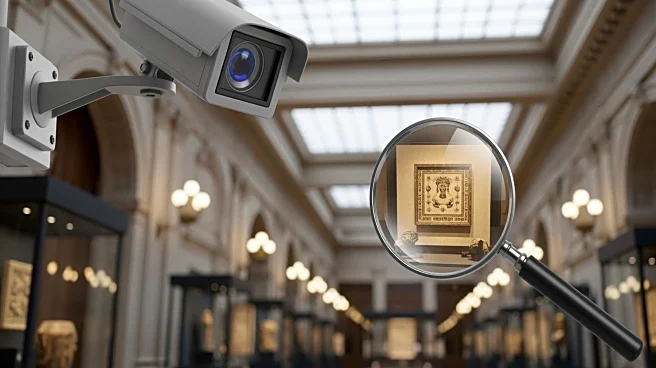What's Happening?
Two men have been arrested in connection with the theft of French crown jewels from the Louvre Museum. The suspects, identified through DNA and surveillance footage, were apprehended as they attempted
to flee the country. The heist, which involved the theft of jewels valued at €88 million, has led to increased scrutiny of the museum's security measures. The Louvre's director, Laurence des Cars, has faced criticism for delays in implementing security upgrades, and her offer to resign was declined by the culture minister. The French government has announced a comprehensive review of museum security nationwide.
Why It's Important?
The arrest of the suspects in the Louvre heist underscores the challenges faced by cultural institutions in safeguarding valuable artifacts. The incident has sparked a national conversation about the adequacy of security measures in museums, with potential implications for funding and policy changes. The scrutiny faced by the Louvre's director highlights the accountability of cultural leaders in ensuring the protection of national treasures. The government's response may lead to significant investments in security infrastructure, affecting how museums operate and protect their collections.
What's Next?
The investigation into the Louvre heist is ongoing, with authorities expected to release more information following the suspects' interrogation. The French government is conducting a survey of museum security, which could result in new policies and increased funding for security measures. The Louvre has already moved its remaining jewels to a secure location, and further security upgrades are planned. The case may also lead to international cooperation in recovering the stolen jewels and preventing future thefts.
Beyond the Headlines
The Louvre heist raises broader questions about the preservation of cultural heritage and the responsibilities of museums in protecting their collections. The incident may prompt a reevaluation of security practices in museums worldwide, balancing public access with the need for protection. Additionally, the case highlights the ethical considerations of privacy and transparency in criminal investigations, as French law restricts the release of suspect information.









